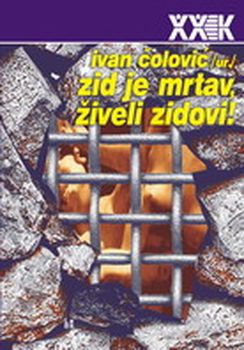
We kindly inform you that, as long as the subject affiliation of our 300.000+ articles is in progress, you might get unsufficient or no results on your third level or second level search. In this case, please broaden your search criteria.

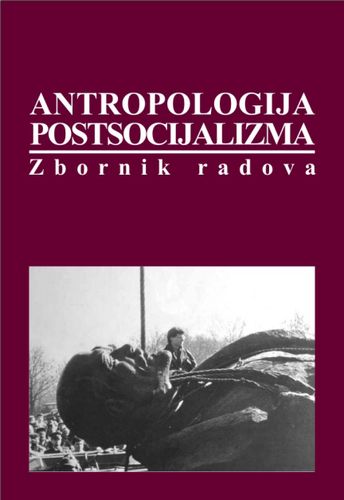
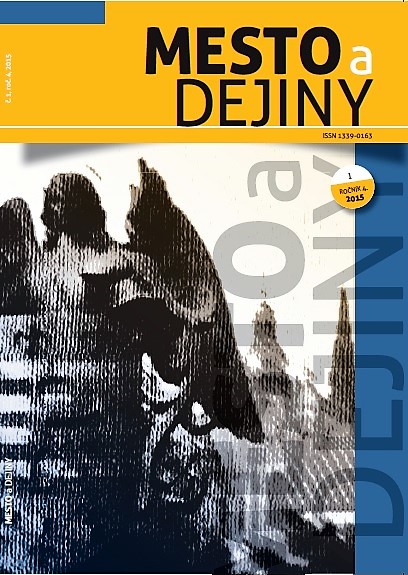
The paper deals with complex problems in addressing the adverse housing situation of the Roma population in Košice. After World War II, part of the city known as the gypsy camp under Moldavská way found itself in an extremely exposed position at the entrance to the city. Arrival the amount of working class from rural areas with extensive construction and urbanization ratios further deepen. Numerous Roma growth was evident. Housing problems are addressed through an allocation of older apartments, phasing out the huts in the camp and fi nally focusing on specifi c Roma settlement. The idea of a separate settlement originated in the mid-60s, in 1970, the planned housing units was not built. Another intention of anticipated settlement was in the area Myslava with lower standard family houses. Because of the high costs the concept of prefabricated houses gallery type was born. The government in 1976 refused to deal with Roma housing in specifi c neighbourhoods. Council city national committee nevertheless approved the construction of Luník IX without a specifi c focus. The construction was carried out in late 1970s, several policies were processed recall procedure Roma families from the camp as well as the old city, according to various streets. In 1981 began the history of Luník IX, its ethnic ghettoization with disastrous consequences to the present.
More...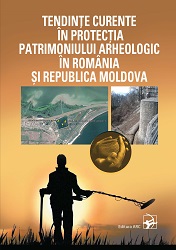
The book is a collection of articles on archaeological heritage preservation in the Republic of Moldova and Romania.
More...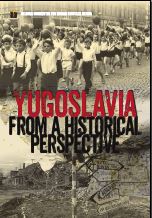
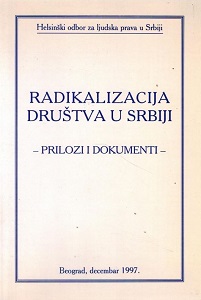
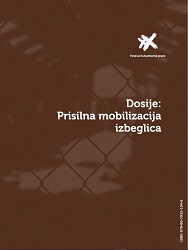
The dossier "Forced Mobilization of Refugees" is the twelfth file of the Humanitarian Law Center (HLC), which aims to provide the public with evidence of systematic and widespread violations of human rights of refugees in Serbia. The dossier is based on more than 500 statements of forcibly mobilized refugees given to HLC researchers during 1997 and 1998 and members of the families of refugees who died or disappeared after being sent to the area of armed conflict; court documents from more than 120 litigation before the courts in Serbia for damages, in which the HLC represented forcibly mobilized refugees or their families; evidence presented before the International Criminal Tribunal for the Former Yugoslavia (ICTY), as well as documents obtained by the HLC from the Serbian Ministry of the Interior under the Law on Free Access to Information of Public Importance. The Dossier also used HLC reports on the forced mobilization of refugees published in the 1990s, reports from other domestic and international human rights organizations, as well as media reports.
More...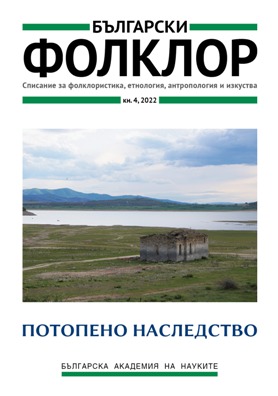
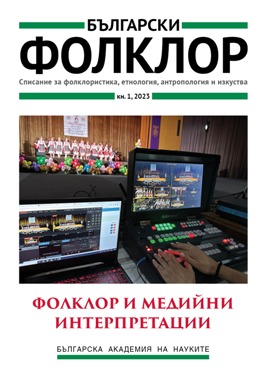
The ways in witch advertising uses folklore motifs are rather varied and interesting. In this article, we first clarify what the essence of advertising is at a theoretical level, who it is aimed at, what is presented and how it is presented, and of course, also who orders the advertisement. This synthesizing theoretical introduction is necessary in order to fully understand the differences between audio advertising, visual and audio-visual presentation, as well as how contemporary advertising permeates the media environment including Internet and social networks. Also significant is the psychological effect on the costumers, which uses a number of traditional stereotypes and expected behaviour patterns. Subsequently, we will look in more detail at the role of folklore and especially folklore narratives in advertising, including its changes in the last century, which we will illustrate with two specific examples. The next part of the article consists of an analysis of two contemporary advertising campaigns with dominant folklore motifs in the Czech media environment (Equa bank and Seznam.cz), in which we show in detail the way they communicate with the costumer, the folklore stereotypes used and the comments of the clients and creators of these advertisements regarding the expected effect of the campaign.
More...

The political changes after 1989 in Bulgaria and the country’s difficult economic transition, temporarily led to a decline in patriotic feelings among the Bulgarian people. With few exceptions, such as Bulgaria's triumphant performance at the 1994 World Cup, which led to unprecedented national pride, the idea of belonging and unity began to dissolve in the harsh and uncertain conditions of the transition from socialism to a market economy. This led to a deterioration of relations in Bulgarian society, a sharp revision of values, a decrease in tolerance, and the entering into everyday life of the so-called language of hatred. Political parties were created which, under the guise of patriotism, openly promoted more radical sentiments toward various types of minorities. An increase in domestic crime at the time proved to be a fertile ground for such rhetoric. The fact that from the beginning of the new millennium until now, some Bulgarians have been invariably supporting nationalist parties, shows that these political formations are an expression of permanently present sentiments in the Bulgarian society. The current text will focus on nationalist manifestations towards the second-largest ethnic minority in the country – the Roma. For this purpose, specific events will be examined and analysed, and an attempt will be made to provide answers to several questions such as: What is the role of the Bulgarian minorities in these nationalist attitudes? Is it possible to build an identity based on the rejection of the other, and what are the manifestations of this rejection? How do such manifestations of intolerance and confrontation reflect on the identity of the minority itself? Who benefits from this rhetoric, and what are its consequences for the Bulgarian society?
More...
The article proposes to refine the periodisation of Russian and Russian-speaking immigration in Bulgaria. It examines the necessary context, describing changes in motivations and identity projects of these groups from (relatively) 2013 to 2023. The text outlines the specific tool - the blog, reinvented in a modern context – the text highlights the differences between it within the visual platform Instagram and its classical visual version. Thus, some of the main features of Russian-speaking users’ own online representations are brought to the fore through the implicit and (counterintuitively) explicit discourses of Russian-speaking users. They focus the analysis on their identifications and the specifics of adaptation and its dynamics, maintaining a sense of community but also accumulating social capital that directly reflects their plans and strategies for the present and future.
More...

Georgian everyday life is highly tied up with the rich religious traditions that have been developed as a result of the centuries-long synthesis of pre-Christian and Christian practices and worldviews. The Soviet period caused the fragmentation of the traditional religious knowledge and the practice moved to the household level and was paganized. In the post-Soviet period, the burst of religious sentiments and search for identity increased the involvement of big masses to religious practices. The transformations were accompanied by a process of individualization of religion, which has led to a change of forms of religiosity. Based on the ethnographic data of East Georgia, the article discusses the correlation of the normative, vernacular and resistant forms of religiosity. Historical-comparative and parallel analyses are used to research two examples of religious practice: Lomisoba and Berikaoba. Lomisoba is analyzed as an example of hybrid, massive, collective holiday. Berikaoba is more local, not connected to a sacred site, performative festival. It is argued that the contemporary processes are having an impact on the religiosity and the religiosity of certain groups is trying to be defined in new forms. All the old and new forms of religiosity are explicitly displayed and played out in contemporary Georgia. At the same time there are some hidden, or rather implicit practices.
More...
The article introduces to the late medieval romance in verse Vepkhistq’aosani by Shota Rustaveli – the central artefact in Georgian cultural self-awareness and the top item of ‘high’ Georgian cultural export. It briefly presents its narrative content, indicating the correlation of two plot-lines (initially through enframing, after some point though horizontal interlacing). It briefly introduces to the main fluctuations and 20th-century tendency in translating the work’s title, interpreting the fluctuations as indicative of aesthetic differences, and the tendency as an indication of the ‘cultural market’ success of the Soviet-Georgian (in its ideological and aesthetical basis –a Stalinist and socialist-realist) image of Rustaveli’s masterpiece. It presents two influential to dominant claims of Georgian Rustvelology – that the work is a poema (and not a novel/romance) and that it displays, at least partially, Renaissance outlook and poetics, – considering these claims as tools (1) of Soviet “Culture Two” to allot a proper place to Georgian nation within the alternative modernity of the USSR and its premodern background-under-construction, and (2) of Soviet-Georgian cultural nationalism to define a usable past in post-Soviet conditions; and (3) as beliefs. It revitalises the option to contextualise the work of Rustaveli (and, indirectly, Georgian cultural identity) in non-Eurocentric terms, providing some factographic and theoretic clues from the field of macrohistory (J. Abu-Lughod et al.) and a methodological one from sociology of arts (P. Bourdieu).
More...
The article examines, from a historical and contemporary perspective, the processes of valorizing diaspora gardening as local heritage in two significant "gardener villages": Polikraishte and Draganovo (within the municipality of Gorna Oryahovitsa). Based on field studies conducted in Bulgaria and Hungary, the research describes journeys to and from ancestral places, emphasizing their significance and functions in constructing local heritage. The text explores interpretations of diaspora gardening within the settlement's history. In the study, the valorization of gardening as local heritage in Bulgaria is considered a means of establishing connections between the two countries and an integral part of constructing the cultural memory and identity of the Bulgarian community in Hungary.
More...
The purpose of the research is to outline the specifics of Bulgarian gardeners and Bulgarian horticulture in Budapest in the first quarter of the 21 century by means of two examples.Methods of observation, biographical approach, and free and semi-structured interviews are applied. The relationship between Bulgarian horticulture and cultural heritage is analyzed.The study is the result of the author’s participation in a project “Migrations. Modernities, and Intercultural Mediation – Bulgarian Immigrant Groups to Hungary in late 19th and early 20th c. and their Impact on the Social and Cultural Life of the Host Society”.
More...
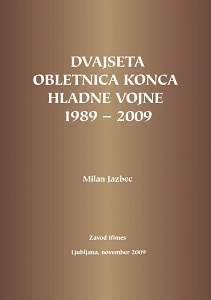
Our thoughts have the ambition to reconsider, from selected aspects and in a generalized sense, what happened twenty years ago and how we look at it today. At the same time, we will reach out to different areas and here and there rely on the broader time period just indicated and try to justify the hypothesis that it is, on the one hand, a continuous, complementary and unpredictable process of change, and on the other hand, a logical historical process , which science should nevertheless understand and predict to a certain extent, since there were enough signs, as well as past experiences. The latter is all the more so if we know that Auguste Commte laid the maxim in the foundation of sociology as a science of society that its goal is to analyze in order to understand, and to understand in order to be able to predict. Last but not least, it is the same, although in a symbolic way, Prešeren also said when he wrote in the fifth gazelle, "the year begins to grow old already in the spring": when a process is at the peak of its activity, we can already perceive signs of its change in it. With this, we clearly indicated that we will also touch on the phenomenon and the city of Slovenia in this process. With all of the above, it is above all true that even at the end of our thinking we will still have more questions than answers, although perhaps still and at the same time at least a little less vague.
More...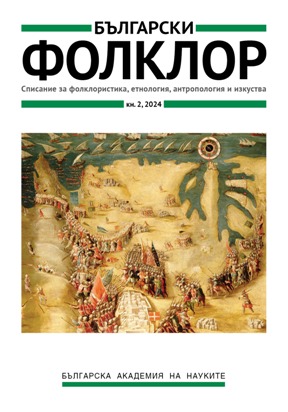
The article examines, from a historical and contemporary perspective, the processes of valorizing diaspora gardening as local heritage in two significant "gardener villages": Polikraishte and Draganovo (within the municipality of Gorna Oryahovitsa). Based on field research conducted in Bulgaria and Hungary, the publication investigates how diaspora gardening becomes part of the local festivities and commemorative practices. The article traces how transnational gardening, while practiced as a local livelihood, is connected to traditional festivities and examines the changes in the local dimensions of the festive calendar during socialism and more recently. A separate section is dedicated to the new festivity (its emergence, development, and messages) as a current means of transforming local livelihood into cultural memory and the local heritage of the two settlements.
More...